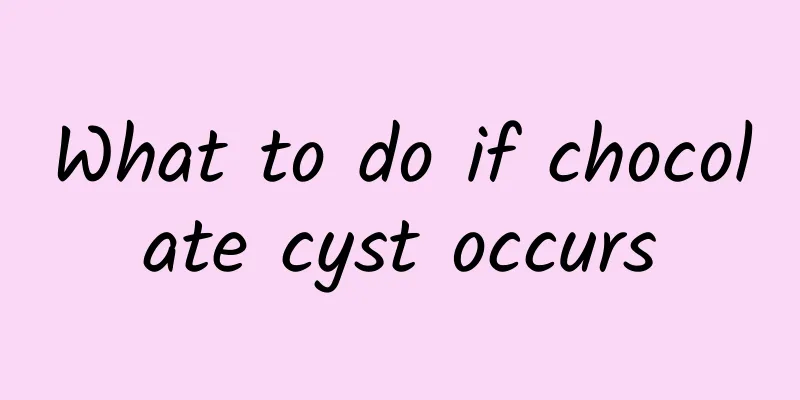Eating persimmons incorrectly can hurt your stomach, don't touch these four landmines

|
Sweet persimmons are crispy and delicious. Now is the perfect time to enjoy sweet persimmons! But I heard that persimmons can hurt the stomach if eaten with high-protein seafood or meat? Nutritionists say that when the "tannic acid" in persimmons is eaten with protein foods such as seafood and meat, it will interact with stomach acid, causing food to precipitate and clump in the stomach, thereby causing gastrointestinal discomfort. Before eating persimmons, people are advised to first understand the four landmines of eating persimmons. Persimmons can be divided into two categories: sweet persimmons and astringent persimmons. Domestic nutritionist Liu Wenzhang said that persimmons contain calcium, vitamin C, carotene, sugar and protein, as well as trace elements such as iron and iodine. In addition, 100 grams of fresh persimmons contain 3-4 grams of dietary fiber, which can effectively relieve constipation when combined with sufficient water. Although eating persimmons has many benefits, the tannic acid in persimmons can easily interact with certain foods and cause gastrointestinal discomfort. Before eating persimmons, you should first understand the 4 taboos of eating persimmons so that you can eat healthily without burden. Landmine 1: Eating with high-protein seafood or meat Nutritionist Liu Wenzhang pointed out that in traditional Chinese medicine, persimmons are cold in nature. If they are eaten together with seafood that is also cold in nature, diarrhea may easily occur. From the perspective of Western medicine, the tannic acid in persimmons can easily interact with stomach acid. If eaten with high-protein seafood or meat, the food will precipitate and clump in the stomach, making it difficult to digest, and causing gastrointestinal discomfort. If you experience gastrointestinal discomfort after eating persimmons, nutritionists recommend drinking more water to relieve the symptoms. Landmine 2: Eating on an empty stomach Because persimmons contain more tannins, eating them on an empty stomach will easily react with stomach acid and produce precipitation and lumps. It is recommended to eat them 30 minutes after a meal, and limit the consumption of persimmon to one persimmon a day. Landmine 3: Eating persimmon peel Since most of the tannins in persimmons are concentrated in the skin, it is impossible to remove all the tannins when the persimmons become less astringent. Therefore, it is best to remove the skin before eating persimmons. Landmine 4: People with diabetes or kidney disease should avoid eating this food Sweet persimmons are fully ripe persimmons. The sugar in the flesh has been completely converted into monosaccharides and is easily absorbed by the human body. People with diabetes or those with prediabetes should not eat too much. In addition, persimmons are high in potassium and are not recommended for kidney patients, especially those using diuretics. Tannic acid in persimmons can prevent blood vessel aging Western research in recent years has found that persimmons have the effect of preventing heart disease, diabetes and cancer. The important ingredient of persimmon, "tannic acid", can adjust the oxidative environment in the body, avoid the oxidation of bad cholesterol, prevent blood vessel aging and arteriosclerosis, and regulate blood pressure. It has many benefits. The white powder on the dried persimmon has the effect of moistening the lungs and reducing phlegm. Nutritionist Liu Wenzhang pointed out that after persimmons are dried into persimmon cakes, there will be a thin layer of white powder on the persimmon cakes. The white powder on the persimmon cakes is the sugar that seeps out of the flesh after the persimmons are dried and condensed on the skin. It is called "persimmon frost" and has the effect of moistening the lungs and reducing phlegm. After being dried, the tannins in the persimmons are destroyed, so it is less likely to form precipitation and lumps in the stomach. [4 tips for choosing persimmons]: Sweet persimmons are in season now. We recommend the following methods for selection: Tip 1: Eat the hard ones: The harder the sweet persimmon is, the fresher and crisper it is. You can test it by lightly pressing it with your fingers when purchasing. Tip 2 / Color: It is best to choose fruits with a rosy orange color, which represents a ripe persimmon. If you buy unripe persimmons, you can ripen them together with bananas and apples. They will taste sweeter and be less irritating to the stomach. Tip 3/Look at the appearance: Persimmons that are round, smooth, clean, spotless and full in weight are fresh, high in moisture and sugar. If there are cracks at the bottom of the persimmon, it may be infected by bacteria or infested by insects, so you should avoid buying it. Tip 4/Storage period: Persimmons can be kept in a ventilated place at room temperature for about 10 days, and they will start to soften after 10 days. If you don’t finish eating it and want to keep it crisp and fresh, you can put it in a plastic bag and then refrigerate it. It can be kept for 20 days to 1 month. |
<<: Eat rice to lose weight! Low-calorie light rice recipe from a stylish chef
>>: 10 smart fruits and vegetables to help you lose weight and improve your memory
Recommend
Can eating a high-protein breakfast help you lose weight? Study: Body fat will decrease
Can eating breakfast help you lose weight? Many t...
Will skipping rope after childbirth cause uterine prolapse? Possibly
Jumping rope after childbirth may cause uterine p...
How to treat multiple uterine fibroids? What are the treatments for multiple uterine fibroids?
Because women's health will be seriously enda...
Should ractopamine be lifted? Doctors call for supporting measures
The Codex Alimentarius Commission (CAC) voted to ...
Central obesity: Apple-shaped body is harmful to health
Some people have normal limbs and are not overwei...
Why does uterine fibroids grow during cesarean section?
Why does uterine fibroids grow after cesarean sec...
What to do if you have chest pain after miscarriage
What to do if you have chest pain after miscarria...
Can drinking coffee cause esophageal cancer? Nutritionist Gao Minmin: The four real cancer killers are…
Esophageal cancer, known as the "king of can...
Does irregular menstruation affect ovulation?
Irregular menstruation may affect ovulation and t...
What are the symptoms of cervicitis
According to medical research, many women do not ...
Can I prepare for pregnancy if I have endometrial tuberculosis?
Endometrial tuberculosis is a gynecological disea...
What medicine can cure ovulation bleeding?
The so-called ovulation period, also known as the...
What are the symptoms of mild bacterial vaginosis?
Bacterial vaginosis has long been a very troublin...
Kong Qiang, who suffers from diabetes, laments: "My organs are being eaten away." Is the lunch box also to blame? Nutritionist: 6 tips for healthy bento
Will eating bento for a long time really cause il...
Can color Doppler ultrasound detect ectopic pregnancy? Vaginal color Doppler ultrasound is more accurate
Ectopic pregnancy is something every pregnant wom...









